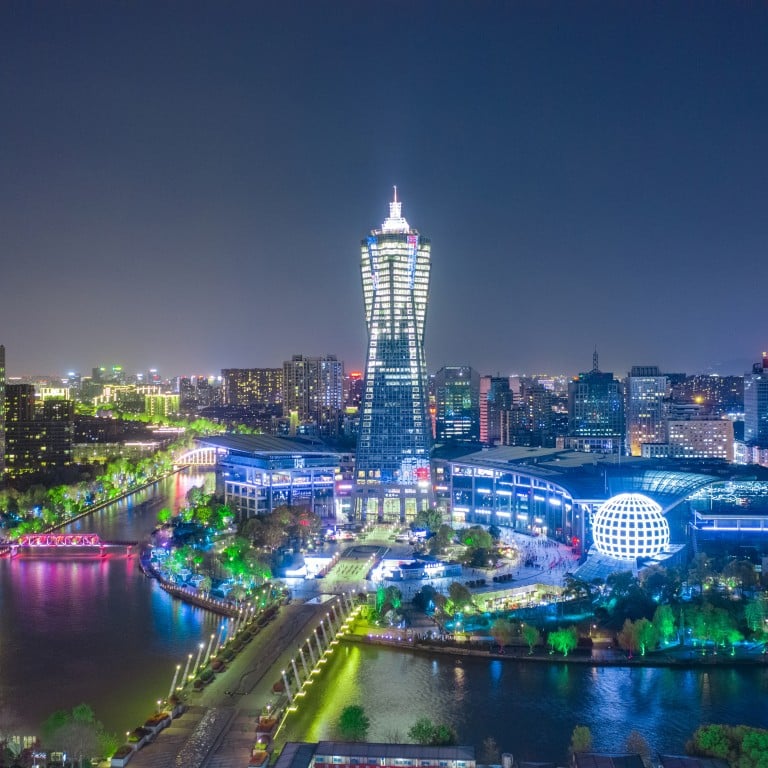
Alibaba’s home province to offer preferential tax policies and promote ‘hard tech’ such as chips and digital security
- The local government aims to ease the financial burden for enterprises and individuals by 300 billion yuan in 2022
- Policy support is in line with China’s pivot towards core technology areas to help it fend off pressure and sanctions imposed by the US
Zhejiang province, home to e-commerce giant Alibaba Group Holding, is putting into place preferential tax policies and will promote hard tech industries such as integrated circuits and digital security in 2022, as it seeks to bolster government efforts to strengthen self-sufficiency in strategic technology sectors.
The local government said it aims to ease the financial burden for enterprises and individuals by 300 billion yuan (US$47.42 billion) this year.
“We will fully implement preferential tax policies and fight for stronger support from the central government,” it said in the 2022 government work report, adding that the government was using “real gold and silver” to help industries “go to the battlefront with fewer burdens” and to focus on development.
The local government also said it would “promote technology innovation” and “make every effort to promote growth of the digital economy”. It will increase spending focused on technology innovation fields by 40 per cent and offer support to industries including digital security, integrated circuits, intelligent computing and intelligent photovoltaics (solar power).
China vows support for tech start-ups to drive future innovation
It also intends to support future fields, such as brain-like intelligence and quantum information.
The coastal province, with Hangzhou as its capital, has become a major battleground for the country’s digital economy. The Hangzhou tax department fined former live-streaming queen Viya, whose real name is Huang Wei, a record 1.3 billion yuan for tax evasion late last month.
In November, two other live-streamers - Zhu Chenhui, known as Cherie online, and Lin Shanshan - were also fined millions of yuan by the authority for tax evasion after Beijing clarified tax rules for the industry.
China must brace for ‘digital cold war’ with US as tech rivalry heats up
The local government has traditionally been supportive of e-commerce development, which helped internet platforms like Alibaba grow.
The success of Alibaba, founded by Jack Ma and his team in a residential flat in Hangzhou in 1999, has helped transform the city into one of the most attractive destinations for China’s tech talent and venture capital funds. Alibaba owns the South China Morning Post.
Online sales in Zhejiang province in 2021 totalled 2.52 trillion yuan, representing a year-on-year increase of 11.6 per cent, according to official provincial data released last week.

